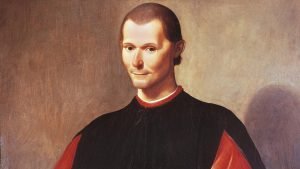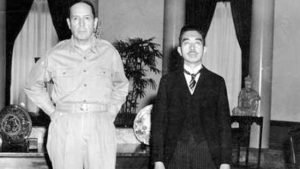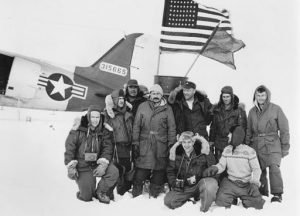This Day in History is DUE’s daily dose of trivia for all the history buffs out there. So sit back and take a ride of all the fascinating things that happened on 3rd May!!!!
People are trapped in history and history is trapped in people, and hence, every day has been a significant one in the foibles of history. Now, let’s take a tour of “This Day in History – 3rd May”.
1469: Italian philosopher and writer Niccolo Machiavelli is born
Niccolo Machiavelli is one of the fathers of modern political theory. His most famous work The Prince (Il Principe), brought him a reputation as an atheist and an immoral cynic. His experience showed him that playing politics requires deception, treachery and crime. He also said that a ruler who is establishing a kingdom or a republic, and is criticized for his deeds, including violence, should be excused when the intention and the result is beneficial. Even the term Machiavellian has come to denote political deceit and deviousness today.

1937 Margaret Mitchell wins Pulitzer Prize for Gone With the Wind
Published in 1936, Margaret Mitchell’s Gone With the Wind won the Pulitzer Prize in 1937. It is a sweeping romantic story about the American Civil War from the point of view of the Confederacy. Scarlett O’Hara, a headstrong Southern belle survives the hardships of the war and capitalizes on the struggle to rebuild the South, to establish a successful business. It sold one million copies in its first month and brought unexpected fame to its author. It was also adapted into an Oscar-winning film in 1939. Despite its popularity, critics often see Gone With The Wind as problematic because it glorified the antebellum South and perpetuation of stereotypes of people of colour.

1947: New Japanese constitution goes into effect
On November 3, The Diet promulgated Japan’s postwar constitution which went into effect today. It granted universal suffrage, stripped Emperor Hirohito of all but symbolic power, stipulated a bill of rights, abolished peerage, and outlawed Japan’s right to make war. Supreme Allied Commander Douglas MacArthur and his occupation staff largely worked on the document. They had prepared the draft in February 1946 after a Japanese attempt was deemed unacceptable.

1952: Joseph O. Fletcher lands first aircraft on the North Pole
Lieutenant Colonel Joseph O. Fletcher of Oklahoma and Lieutenant Colonel William P. Benedict of California piloted a ski-modified US Air Force C-47 to make it the first aircraft to land on the North Pole. Fletcher climbed out of the plane and walked to the exact geographic North Pole, probably the first person in history to do so. Standing alongside Fletcher was Dr. Albert P. Crary, a scientist who in 1961 travelled to the South Pole by motorized vehicle, becoming the first person in history to have stood on both poles.

1960: The Anne Frank House opens in Amsterdam, The Netherlands
The Anne Frank House is one of the most famous buildings in the world. Jewish diarist Anne Frank, her family and others hid from the Nazis for two years during World War II, in the building’s Secret Annex. Her father Otto requested to keep it empty. He was the only one to return from Auschwitz. When demolition plans were announced, The Anne Frank House organization was established in 1957 to help Otto protect the building. Following its public opening, the number of visitors to the house skyrocketed from several tens of thousands in the first years, to more than 1.2 million visitors a year. It now operates as a writer’s house and biographical museum.

2018: Bollywood awards Sridevi and Vinod Khanna posthumously
Ram Nath Kovind felicitated Bollywood stars Sridevi and Vinod Khanna posthumously at the 65th National Awards today. Sridevi, whose filmography spanned across 50 years and in 300 films in languages such as Tamil, Telugu and Hind won Best Actress for her role in Mom. Vinod Khanna became the 49th recipient of the Dadasaheb Phalke Award, India’s highest film honour. He became the only second actor to receive the honour posthumously after Prithviraj Kapoor.

